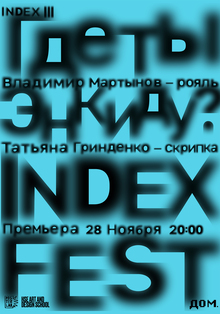
Speaking Body on-line
Field notes on the possibility of online psychoanalyzing, from the point of view of the Lakanian psychoanalyst.

Couch
For a patient, the couch becomes a place where he can open up to a psychoanalyst, where he can put his thoughts, which he usually hides from other people. He can talk about his desires, his fears, his dreams, his relationships with others who may not be understood or acceptable in normal life. The couch also allows the patient to look at his body on the other side. It is a symbol of the fact that the patient’s body is important and worthy of attention, while it is often forgotten in everyday life. The body becomes the basis for a psychoanalyst to understand how a patient experiences his emotions and how his thoughts interact with his body. A couch can also symbolize a lack of sexual contact between a psychoanalyst and a patient. So the couch becomes a place where the patient can express his thoughts and emotions in words and symbols rather than in physical contact.
A couch is a bed without bedding. A bed is a place where a person finds a body that is forgotten in everyday life. It’s where he finds the body of another. A couch like a single bed. She detects a lack of sexual intercourse.
The couch can be seen as a wardrobe where the patient removes his or her body and is exempted from the role of an active subject. When we’re on the couch, we give up our normal behavior and we start talking about what’s in the depths of our unconscious. It can also be seen as a place where we leave our image, our appearance, and the physical sensations associated with our normal behavior. We can display our hidden thoughts and emotions, which we usually hide from others. Our body is part of our image of me, which we create to exist in the world. However, on the couch, we can abandon this image and free ourselves of it. There remains a third body, which is our rags, our scum, which we carry behind us and which is of particular importance to us.
Perhaps we can say that the cupboard is the wardrobe where we take off our body, where we free ourselves from the active body, where we also leave the imaginary body, our own image. The third body remains, which is our rags; this scum that the unsub carries behind him and that he cares so much about.
Attendance
In Lacan psychology, there is the concept of non-existence of sexual relations, which implies that there is no complete merger of the two individuals during the act of love or, more broadly, the impossibility of full understanding and compassion for the other person. Synchronization during the session is necessary to detect this lack of sexual connection. When two people are in session, they synchronize, not to see each other or to be physically close. This synchronization allows them to become deeply involved in the psychological experience that is taking place within each of them and to understand their hidden desires and fears.
In the session, two are together, synchronizing, but not to see each other. Body presence is necessary to detect the non-existence of sexual intercourse.
It is important to understand that a virtual presence cannot replace the actual presence of bodies at a psychoanalysis session. If we sabotage a real presence at a session, the paradox of non-existence of sexual intercourse disappears, and we cannot reach the deep levels of our personality that are available only through the present presence.
Speaking Body
When the patient falls on the couch, he separates himself from the world of external events and goes into contemplation. The couch amputates the body’s motor functions, eliminates the patient’s physical activity, eliminates the patient’s appearance. He may become more open and honest in his remarks, as he does not feel valued or afraid to be judged for what he has said. The body left on the couch represents the body necessary for the analysis process. The patient is becoming a pure speaker. His words, words and experiences go back to their original meaning, without distortions and the influence of social and cultural norms, which helps the patient better understand his thoughts and feelings and accept them as part of himself.
The couch amputates the body’s motor functions, its ability to act, its visibility. It represents the body left behind. Cushion means becoming a pure speaker.
In lakana psychology, the body is not regarded as just a physical being, but as an area where symbolic, real, and perceived order is crossed. The experience of ourselves as a body implies the realization that our body interacts with all these ways, and that it is not just a tool that we use to meet our needs. The experience of being a body on a couch can be particularly significant because, in this context, the body is in a relative state of helplessness. Since there is no possibility of physical action, the body becomes a «poor body» — a body that cannot act, can’t protest, can’t defend itself. The body is influenced by a speech that «parasites» on it; speech and other forms of symbolic activity can affect it by changing its functioning, symptoms and diseases. So the body becomes «sick» not only physically, but psychologically.
This gives the patient the opportunity to gain experience as a parasite body — a poor body affected by the disease of talking creatures
Internet presence
The Internet is a new body that gives the body the illusion of immediate access to all things.
Human interaction with the world is largely determined through language, which is the main tool for building and understanding reality. In this context, the Internet can be seen as a new language tool that changes our sensitivity to peace. The Internet gives us access to vast amounts of knowledge and various forms of human expression. It creates the illusion of immediate access to all things, including information, goods and services, which changes our attitude towards peace, our behaviour, our sensitivity to others and our social relations.
« By all their tools, man improves his organs — both motor and sensory — or expands their scope of application.»
The human body is not a fixed and fixed entity, but rather a derivative of the relationship between the individual and others, the environment, culture and language. In this context, Freud ' s statement that the individual is improving his or her organs and expanding their scope of application can be seen as an expression of this process of interaction between the individual and the culture. A person shapes his or her personality through social and cultural norms that he or she perceives and develops. It also creates its identity through a language that ultimately determines its thoughts, behaviour, and interaction with the surrounding world. Thus, in the context of Freud ' s statement, it may be considered that the process of improving and expanding human organs can be interpreted as a process of adapting culture and social norms; human bodies become the tools that they use to meet their needs and adapt to the environment. However, this process is not without contradictions. The use of tools and the broadening of the scope of application of organs can distort our perception of the environment, our feelings and our thoughts.
Now the real one consists of objects that are not natural, it consists of skills and procedures.
The real thing is not objects that we can observe, describe and classify in accordance with our understanding of nature, but rather something that lies beyond our ability to understand and understand, it is a direct experience of what we cannot fully understand, as we are always within our personality, with limited access to the outside world. Today ' s world is becoming increasingly dependent on technology and skills rather than on natural objects. In today’s world, real is what we can create and use, not what exists independently of us. Our skills and procedures create new objects and realities that change our perception of the world. However, it also means that our attitude towards reality and our personality is changing. Our «me» is no longer a stable and constant core, but rather a combination of our skills and procedures.
If the letter, according to Freud, was the language of the absent person, heat, e-mail, online games, Facebook, WhatsApp and Instagram is the language of the Other One’s excess presence
With new technologies such as chat rooms, social media, online games, reality begins to change. Instead of understanding the world through nature and physical objects, we interact with a worldwide network that represents the excess presence of the Other. The other is all the people who use these technologies and interact with each other through them. Thus, our reality is based not only on physical objects, but also on our interaction with others. The house that used to replace the mother body is now linked to the computer and the Internet, creating a sense of comprehensive home automation and bringing new skills and procedures to people. Therefore, reality is no longer linked to nature and physical objects, and the interaction between human beings and technology has come to the fore.
Reaching Your Life
The Internet is becoming a field for the expansion of narcissism, that is, for the pursuit of true existence, the belief in its abilities and the importance of its existence. Narcissism is a passion for itself, for its existence, which is a fundamental illusion and, at the same time, a driving force for our desire. It is an attempt to find the true me, which is hidden within us, and to show it outwards, to obtain confirmation of its importance and value. However, the Internet can provide new opportunities to interpret and understand our psychology and narcissism. This may be useful for those who seek to understand their own desires and for psychoanalytic practices. Thus, the Internet and new technologies can not only be a source of some problems related to narcissism and the loss of connection to reality, but also a new field of understanding of our psychology and desires.
The Internet offers a field for the expansion of narcissism and for everyone to try to achieve their own existence. To solve the riddle: « Be what you are ».
Is it a social connection?
There has been a change in the psychological dynamics of society with the advent of the Internet. The use of the Internet as a new symbolic order allows people to establish new connections and feel less alone. At the same time, however, the universal right to communication can also contribute to the development of narcissistic individual structures. The use of social media and online communication can be a means of strengthening self-esteem, seeking attention and recognition from others, which can lead to the formation of narcissistic complexes and strong identification with a virtual self-identity.
Today we talk, we write, we meet on the Internet. Lonely people feel less alone. The links there are set up and maintained. Everyone brings their loneliness there. It’s hard to imagine losing him. It’s a new universal right.
People who feel lonely and isolated in real life find relative relief in online communication and social media where they can find a community and strengthen their identity. However, it can also result in them becoming dependent on the Internet, marginalized from reality, and losing the ability to engage truly with others.
Access to knowledge
Our consciousness and our knowledge are generated by social relations and interaction with others. Thus, the education and knowledge we acquire are not just a set of facts and figures, but a product of complex social dynamics. The more knowledge becomes visible and accessible to all, the less valuable it becomes. This can be interpreted as the need to maintain a certain level of unknown or unknown in our mental life. Our identity is shaped through our relationship with other people and the world around us, which can be complex and ambiguous, and some aspects of our personality may remain unknown even to us. But it is these unknown aspects of our personality that can be the key to our true identity.
The more knowledge is deployed in a clear form than more pre-defined mode/learning than more textbooks the more valuable the unknown knowledge.
There is something beyond the obvious. Reality cannot be fully understood or expressed in language and symbols, and therefore it remains in some way inaccessible. Knowledge that cannot be fully expressed or clearly described is important to us: learning and knowledge can be very limited and imposed, and can limit our understanding of reality, while unknown knowledge offers an opportunity for intuitive understanding and experience. They can help us to understand our inner desires and fears that can be forgotten or repressed in our daily lives.
The more knowledge and words, the more ambiguity. And then you hear the desire for something other.
Too much knowledge can reduce confidence and increase the desire for something else. The desire of the other cannot be fully satisfied and will always lead to new desires. Our attempt to make clear and clear what we know actually leads to even greater complexity and uncertainty. This is because our attempt to describe and explain the world through words and knowledge cannot fully convey its reality, nor what everyone perceives and interprets the world in their unique image. This means that the knowledge and words we use are always subject to ambiguity and uncertainty.
Knowledge is at the distance of one click. We’re…nbsp; dependent on Wikipedia and Google, but as far as psychoanalyzing is concerned, you can’t learn that. Do you think that this practice has evolved in the the result of new access to knowledge, or psychoanalysis in its experience remains related to truth and logic of unconscious knowledge? B Internet is not ambiguous because ambiguity is between lines, between words that are crossed by each.
The availability of knowledge on the Internet makes it more accessible than ever before, but this does not necessarily mean that psychoanalysis is also becoming more accessible. Uninformed knowledge cannot be fully conscious, psychoanalyzing helps reveal this unknown knowledge. Thus, psychoanalysis remains linked to the truth and logic of unconscious knowledge, even if the availability of information increases. As such, the language is ambiguous. Each word can have several meanings, and the context can significantly change their meaning. Thus, ambiguity is an inevitable component of any language or communication. This also applies to the Internet, where each user can interpret information differently.
What impact does access to knowledge have on the treatment of subjects? The Unknown Knowledge — Is it still mysterious?
Access to knowledge, including knowledge of psychoanalysis, can have both positive and negative effects on the treatment of subjects. On the one hand, more accessible information on psychoanalysis can help patients better understand their symptoms and treatment, as well as increase their motivation for psychoanalysis. On the other hand, however, the excess of information may lead to overloading and making it difficult to establish an emotional link between a patient and a psychoanalyst, which may hinder successful treatment.
Skype.
The Internet is now providing new possibilities for psychoanalyzing, including the use of Skype. Is this a complete substitute for a face-to-face meeting, or are there limitations in virtual meetings for psychoanalysis? This is of great importance because it is the main tool for exposing unconscious processes and conflicts that may cause psychological problems. However, there are some aspects of our experience that cannot be expressed in language but that affect our thoughts and behaviour. Psychoanalysis is an experience that is based on speech. However, the practice of psychoanalysis is possible only in the context of a dialogue between two talking bodies, where what has been said has the potential to be effective.
Lacan calls psychoanalysis experience and considers practice the only means of which is translated. Analysis is all two talking bodies can tell each other .
Virtual communication may be limited, for example, by the ability to express nonverbal signals that may be important for understanding the situation. Also, a meeting in the flesh can create a special emotional environment that can play a key role in treating a patient.
Nevertheless, what is said can be effective, even through the Internet. On the other hand, there’s no reason to be satisfied with Skype. It’s a rendezvous. Virtual sex is good, but the flesh is better .
In the text below, Laura Sokolovski, Hélène Bonno and Eric Laurent are discussing the possibility of conducting online psychological analysis using Skype and other technologies.
Lora Sokolovski: «Some analytical currents, including IPA, believe that a 21st-century analyst can practice online psychological analysis, including didactic analysis. One of the arguments given is based on Lacan’s instructions that the only means of analysis is the patient’s speech. In the Skype analysis, the latter turns off its camera so they don’t see an analyst who can leave his camera on. This would replicate the analytical framework created by Freud, where one speaks and does not see when the other listens and watches. Is that an analysis?»
Eric Laurent: «Oh, no! That’s not the analysis, that’s not all. Two talking natures (parlêtre) in an unprecedented meeting. You don’t have to be technophobic anymore. Lacan was not content with the manuscript on the parchment, he answered the phone and willingly sent telegrams to speed up the process. A modern analyst can also use Skype if circumstances do not allow it to do otherwise. What was the phone and the telegram? You have to use Skype so that you can do without it.»
Elena Bonno: «The analyser is connected. The analyst’s connected. Do you think that, sooner or later, Skype analysis will become a common tool for psychoanalyzing? What are the consequences?»
Eric Laurent: «No fixed phones will be available soon. It’s gonna be rude not to use the image on mobile phones. That’s how we’re gonna talk to each other. So what! There are other writers who can only use a pen. A Hemingway-style Underwood typewriter becomes rare. We’re dealing with this somehow, between acceptance and refusal. We’re swimming between Haribda and Scylla. Again, calm!»
Internet X
Social change affects our mental processes and structures, as well as our relationships and interactions. The Internet, as we know, will disappear, social structures will change, which will inevitably affect our mental and interpersonal relationships. This change may be due to the fact that the Internet is now often used to spread fairy news and lies, which can have devastating consequences for society and our mental lives. We have to decipher and analyse changes in society and the Internet in order to understand their impact on our mental life and behaviour.
The end of the Internet as it is already planned. What comes next will be something else. And we will also decipher the consequences of that.
There are some unknown or inaccessible knowledge that may be important for understanding the Internet. This «unknowable» is a factor that changes our thinking and behavior now.
The body is a secret.
The human body is not just a biological organism, it is filled with symbolic meaning, and it is by language that this meaning is designed and transmitted. The talking body is deeply involved in the unconscious processes that underlie our speech.
What is a talking body, body of talking beings? «The real, I will say, is the mystery of the dynamic body, the mystery of the unconscious.»
The body of an analyst and an analysis is an integral part of mental life and the interaction between them. The presence of the body in the analytical process allows the analyst and analyst to experience different emotional states, thus helping to clarify problems and identify hidden motives. The body and language form a joint in which various problems can occur. For example, if language cannot be expressed through the body, there is a split personality and a symptom. In this sense, the importance of the body in the analytical process is due to its relationship with language and mental processes. So the analyst interprets not only the words, but also the body of the analyser. The body in this sense is the foundation upon which our reality is built, and in this reality the language and the body are inseparable. The body of the analyst and analyst is a source of information as well as a implementer, and without this physical interaction, the analysis cannot be completed. The body is also linked to our unconscious, which is hidden desires and experiments. It is the only place where they can be expressed.
What’s a body?
«In the definition between the body and the flesh, the bodyhows itelf capacity of representative, as the surface of intervention, the table of the other signifier. What is mysterious, but undeniable, is what results from the gold of the symbiotic on the body. The mystery is that of the union of world and body. As a result of this experience, we can say that it is in the register of the real.»
In order to understand the role of the body in psychoanalyzing, it is necessary to distinguish between the concepts of the body and the flesh. The body is the surface on which signs, symbols and signs are recorded. This is related to the fact that the body is capable of serving as the site for the implementation of the Sign, which is the symbol of the Other. However, the process of psychoanalysis cannot be explained only through the examination of the surface body. The symbolic effect on the human body does not occur without changes at the flesh level. This is where the mystical aspect of the interaction between the word and the body arises. In this context, we are faced with the problem of combining words and bodies. This secret is that the symbols used in the language have some magical power that allows them to influence the physical body. In turn, the body reacts to symbolic effects by changing its behavior and attitude toward language.
So the talking creature has a body and uses it as a tool to speak. To speak, a person uses his body.
There’s a difference between the body, like the surface of the inscription, and the flesh, like a bag of organs. The body, like the surface of the inscription, is a place where there is interaction between the individual and the collective unconscious, where the symbolic values of the identification of our culture and language are displayed at the physical level. However, since the symbolic order is ambiguous and not always in line with reality, the body can also protest, reject or change that order. So we can see the body in the analysis becoming a place where there’s a conflict between real, symbolic and fantastic. Finally, it is important to note that in psychoanalyzing, analysts and analysts are not just using their bodies to talk, but rather are symbolic objects that interact with each other through language and symbols. Thus, the analytical process can be seen as a process of creating new symbolic structures that affect the interaction of bodies and symbols.
What’s a body?
A talking creature enjoys using its body to talk, and this enjoyment is one of the reasons why it speaks. The body and language are linked and serve to meet our needs and desires. But this satisfaction is not always understood and can be secret.
Even before using his body to communicate, even before turning to the Other, before any requirement addressed to the Other, a person uses the binding of the body and language for his pleasure. Lacan says he enjoys himself. It can be said that this enjoyment is autoerotic, autistic.
Pleasure goes beyond pleasure and is associated with the excess and pain that it may cause. Even before using language to communicate with others, people use body and language to enjoy themselves. This pleasure is autoerotic and autistic, which means that it is directed at itself and does not require the participation of others. This indicates that people enjoy their own physical feelings and how they use language to give meaning to themselves, regardless of any social or communicative context. A talking creature enjoys using its body to speak. In this sense, language is not just a means of communicating with others, but also a source of pleasure in itself.
Meeting
Communication is a process in which language and body interact. However, in an era of technological progress, the process has become even more complex, as we can now communicate without direct physical interaction. Audio- or video-calling is an example of a new way of communication that is different from a letter in which voice and image are replaced by a physical presence. However, there is no physical presence or influence on the body. Such a communication regime is not intended to perpetuate (as opposed to a letter) and it only works here and now.
The body in the flesh and blood is placed in brackets with an audio or video call.
The real one is a register where all signs, symbols and language designs disappear. However, in the context of communication through audio or video calls, the symbolic body becomes particularly important as it acts as a tool for communication and communication of information. The fact that audio or video calls cannot perpetuate the moment of communication, which underscores its connection to real time and moment here and now.
An audio- or video call, unlike a letter, cannot claim to perpetuate: he is busy communicating here and now.
Detection of the body
Communication in today ' s world, using online technology, claims to secure communication. However, the question «What is a connection?» remains open, as communication is not limited to interaction within the online environment, but rather to the exchange of symbols and meanings between actors, which may be more complex and ambiguous than simply communication through technology.
An unexpected display of the person’s body takes place online through silence. He fell asleep, he died, did he interrupt? However, in such an electronic connection, there is another link that can always be «fixed».
The silence of the analyst plays an important role in the analysis process, as it allows the patient to fill it with his own associations and thoughts. However, when an analyst is silent online, the patient may begin to feel anxious and insecure about the relationship. When an analyst does not respond to messages or calls, the patient may start asking questions about his physical condition. In this case, there is a new Other, which can be imposed on a real analyst, but which can also be built in the patient’s imagination. The other, created through electronic communication, is not entirely real or tangible. Instead, it is rather an abstract design that exists in our minds and in our relationship with other people. The possibility of «correcting» the other could be seen as an opportunity to change our substantive experience and to restructure our identity through new forms of communication.
The problem of broadcasting the body
However, the body itself cannot be drawn to its image, nor to its eyes, nor to its voice — objects that can be transmitted online.
The body cannot be reduced to its image, look, or voice. In the context of online communication, this aspect is particularly important because interaction through the screen significantly limits the ability to perceive and interact with another person. However, if something unexpected occurs during an online analysis session that violates this limitation, the analyst completes the session or gives an unexpected interpretation, and the act is performed not only to awaken the analyst, but also to awaken the analyst himself from the «hypnosis of the latter’s speech». Such acts create a temporary break in the network of associations, which can contribute to a profound change in the perception and understanding of themselves and others.
Other
A real encounter with «other» can lead to frustration and disorder, as it is sexual in nature and is influenced by existing problems in the area of gender and pleasure. Virtual relationships can lead to an escalation of fantasies and even manic behavior. Long-distance communication can lead to an escalation of the imaginary and lead a person to the threshold of madness. Virtual communication may impose certain limitations on decision-making and an analyst may, to some extent, help the patient overcome these limitations by using its role to help the patient to move away from a core that is found in the way of the Friend ' s question, his identity and (not) the possibility of communication.
The other is ultimately the other with regard to sex, or, in short, the other sex — that is, one whose pleasure is different and not uniform.
Sexual enjoyment is the main way in which we define our relationship with the other. The pleasure is different and ununiformed, because each person has its own unique way of enjoying, which cannot be fully understood, and so we will always have some uncertainty and disappointment in our relations with other people, because we can never fully understand them and their enjoyment. Our personality is shaped with regard to the Other, in the circumstances that we will always experience uncertainty and disappointment in our relations with others. But the other is not just another individual with whom we interact, but a symbolic representation of «nothing» or «nothing» within us. This perception is something different from our «I», but it is not anything external or real, but rather our internal opponent or «slip» that prevents us from fully understanding and understanding our own identity and our connection to the world.
The special value of a meeting in the flesh and blood is that it contains the possibility of a rupture that detects what is involved in the Lacan Register of the Real.
The real thing is that it can’t be represented by language or symbols, but can only be felt in pain and trauma. A meeting in the flesh and blood is an opportunity for such experience and a break with the symbolic world in which we live, a violation of established patterns of behavior and an opportunity for awakening.
Sources: (1) Kitchen in the twenty-first century. The coming globalization of couches? To «mobile» body. Eric Favero’s interview with Jacques-Alen Miller. July 3, 1999, «Liberation». 2) Enjoy the Internet. Eric Laurent. La Cause Du Désir 2017/3 (N° 97) (3) Article of the Gleb Napreenenko for «The Word of the Pandemic Era». (4) . Bernard Seynhaeve



